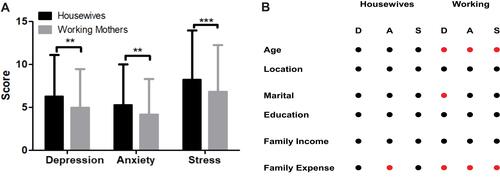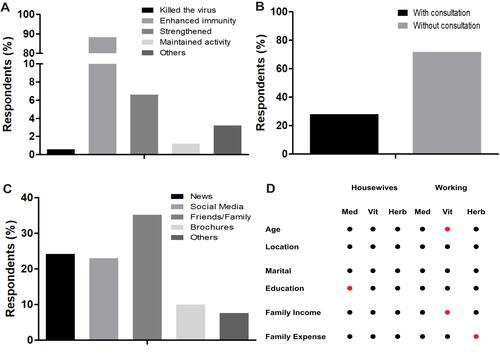Figures & data
Table 1 Characteristics of Respondents (N = 610)
Figure 1 DASS-21 in housewives and working mothers. (A) A total score of DASS 21 in housewives and working mothers. Mann–Whitney U-test was performed, the results showed mean ± SD. **P < 0.01, ***P < 0.001. (B) Influences of sociodemographic factors on the mental health of housewives and working mothers. Sociodemographic factors significantly (●) and non-significantly (●) influenced respondents’ mental health: depression (D), anxiety (A), and stress (S) analyzed by Kruskal Wallis Test. A complete statistical analysis was provided in Table S3.

Table 2 Comparison of Medications and Supplements Consumption Between Housewives and Working Mothers
Figure 2 Reason, medical provider consultation, source of information, and sociodemographic effects on “anti-COVID” medications and supplementation consumption. (A) Reason for medications, vitamin/mineral supplementations, herbs/natural product supplementations of Indonesian mothers with school-age children. (B) Consultation with a health professional before consuming medications or supplementations. (C) Source of medications and supplements information. (D) Influences of sociodemographic factors on the “anti-COVID” consumption. Sociodemographic factors significantly (●) and non-significantly (●) influenced the “anti-COVID” intake analyzed by Kruskal Wallis Test. A complete statistical analysis was provided in Table S4.

Table 3 Association Between Medications or Supplementations Consumption and Mental Health State in Indonesian Mother with School-Age Children
